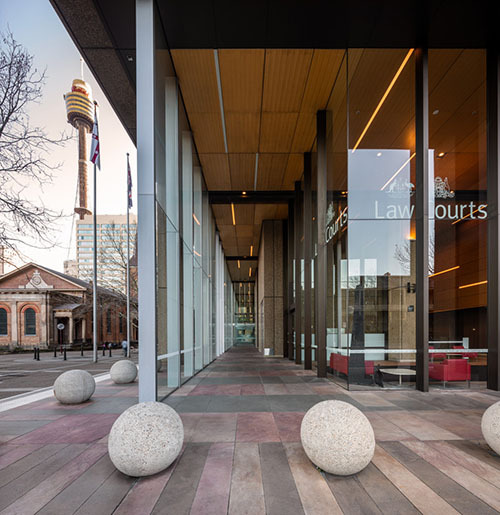- Winter 2024
- Presumption of recoupment not confined to cases of ‘impossibility’ of proof
Presumption of recoupment not confined to cases of ‘impossibility’ of proof

Cessnock City Council v 123 259 932 Pty Ltd [2024] HCA 17
The High Court has held, unanimously, that where a defendant’s breach of contract has resulted in uncertainty about the position that the plaintiff would have been in, the discharge of the plaintiff’s legal burden to prove loss will be facilitated by assuming that loss in their favour.
Background
The appellant, a local council (‘the Council’), owned the land upon which Cessnock Airport was located. In 1998, the Council requested expressions of interest for the development and management of the airport. The request for expressions contained a ‘Cessnock Aerodrome Development Plan’. In that development plan, the Council explained that among its proposals was a subdivision of some of the airport land into lots for lease or sale, to be used for air-related activity.
In November 1998, Aviation & Leisure Corporation Pty Ltd (‘ALC’) a company unrelated to the respondent (then known as Cutty Sark), submitted a response to the Council’s call for expressions of interest. On 2 June 1999, the Council awarded ALC preferred tender status. In March 2004, the Council entered into a three-year lease and management agreement with ALC and adopted a development control plan in July 2004.
In April 2005, Cutty Sark submitted a development application for a proposed hangar on lot 104 of the Council’s proposed subdivision. Between August 2005 and April 2007, the solicitors for the Council and the solicitor for Cutty Sark negotiated the terms of an agreement for lease by which the Council promised to grant a 30-year lease of proposed lot 104 from the day after the registration of the plan of subdivision. The agreement for lease was executed by the Council on the 26 July 2007, following its execution by Cutty Sark. The agreement contained extensive provisions in relation to works to be conducted by Cutty Sark.
The proposed lease to Cutty Sark was subject to the registration of the plan of subdivision. By cl 4.2(a)(2) of the agreement for lease, the Council promised to take all reasonable action to apply for and obtain registration of the plan of subdivision by a ‘sunset date’ of 30 September 2011. If the plan of subdivision was not approved and registered by the sunset date, then each party had power to terminate the agreement.
From May 2007, Cutty Sark began construction of the hangar on the proposed lot consistent with the agreement for lease and the proposed subdivision. At various times between July 2009 and June 2011, Cutty Sark operated three businesses from the hangar. However, it was plain by the sunset date, and without development of the airport, that Cutty Sark’s businesses were not profitable.
Obtaining the anticipated subdivision required the Council to spend considerable sums of money that it did not wish to spend. On 29 June 2011, one day before the expiry of ALC’s lease and management agreement, the general manager of the Council informed ALC that the Council ‘won’t be proceeding with the subdivision of the land at the airport’ because the Council had ‘no intention of spending about a million dollars fixing the sewerage’. On 1 December 2011, the Council terminated its agreements with ALC.
On 13 September 2011, shortly before the sunset date, the general manager of the Council wrote to the solicitor for Cutty Sark saying that the Council had ‘been unable to achieve the registration of the plan of subdivision within the timeframe anticipated in the agreement for lease’.
Due to financial difficulties following its cessation of occupation of the proposed lot 104 and the hangar, by September 2015 Cutty Sark was deregistered by ASIC for non-payment of fees. The Council subsequently acquired the hangar following payment of $1 to ASIC and entered a lease agreement for the hangar with a new tenant.
Supreme Court
In September 2017, following its reinstatement, Cutty Sark commenced proceedings in the Supreme Court of New South Wales. Cutty Sark alleged the Council had breached the agreement for lease and sought recovery of damages based on wasted expenditure in construction of the hangar: at [103].
The primary judge held that the Council had breached cl 4.2(a)(2) of the agreement for lease. The Council breached this obligation by failing to commit funds to connect the proposed lots to sewerage by the sunset date of 30 September 2011. That breach was the effective cause of the non-registration of the plan of subdivision by the sunset date and the failure of the proposed lease to come into effect. The primary judge also rejected the Council’s submission that the agreement for lease had excluded the Council’s liability for damages: at [104].
As to the measure of Cutty Sark’s claim for damages based on wasted expenditure, the primary judge held that Cutty Sark could only cover such damages, without the usual proof that the expenditure would have been recouped, if the nature of the breach rendered it ‘impossible’ to assess damages on that usual basis: at [105].
The primary judge concluded that even if it could be ‘presumed’ that Cutty Sark would have recouped its expenditure, the Council had rebutted that ‘presumption’. The primary judge relied on two matters. First, the primary judge held that there was ‘little demand’ for particular lots and hangar homes at the airport and that ‘there was little interest beyond [Cutty Sark’s] in the further development of the airport’. Secondly, the primary judge placed considerable emphasis on the unprofitable nature of Cutty Sark’s businesses. The primary judge awarded Cutty Sark nominal damages of $1 for the Council’s breach of the agreement for lease: at [106], [108].
Court of Appeal
The court held that the failure by the Council to take reasonable action to procure registration of the plan, and the Council’s statement that it did not intend to do so, amounted to a continuing repudiatory breach that was accepted by Cutty Sark when it vacated the premises, thereby terminating the agreement for lease: at [109].
The Court of Appeal held there was a ‘presumption’, not confined to cases of ‘impossibility’ of proof by a plaintiff, that wasted expenditure caused by a defendant’s breach of contract could be recovered, including all wasted expenditure reasonably incurred in anticipation of, or reliance on, the performance of the defendant’s contractual promise, not merely expenditure that was incurred pursuant to a contractual obligation, or required to perform the contract: at [111].
Cutty Sark successfully challenged the primary judge’s finding that there was little demand for particular lots and hangar homes at the airport and little interest in the further development of the airport: at [112]. Further, the Court of Appeal held that it ought to have been plain to both parties at the time the contract was made that a failure by the Council to perform its obligation under cl 4.2(a)(2) would result in Cutty Sark wasting its expenditure in the construction of the hangar: at [113].

High Court
The Council was granted special leave to appeal to the High Court on the question of whether the Court of Appeal erred in concluding that ‘a presumption arose that Cutty Sark would at least have recouped its wasted expenditure if the contract between the [Council] and Cutty Sark had been performed’ and that ‘the presumption was not rebutted in the circumstances of this case’: at [115], [155]–[168].
The High Court unanimously dismissed the appeal. The primary judgment was a joint judgment of Edelman, Steward, Gleeson and Beech-Jones JJ. Gageler CJ, Gordon and Jagot JJ each considered, in separate reasons, that the appeal also should be dismissed.
In their joint judgment, Edelman, Steward, Gleeson and Beech-Jones JJ considered established contract law principles regarding the measure of consequential losses for a breach of contract. Their Honours stated that for recovery of consequential loss, a plaintiff must prove that the money was wasted because of the breach of contract, and if the plaintiff would not have recovered the money if that obligation had not been breached, the plaintiff has no consequential loss: at [116]–[118], [127]–[128].
Their Honours also considered the facilitation principle in the context of tort, explaining that that principle is not confined to circumstances where it is impossible to assess damages or to intentional acts where the wrongdoing has resulted in uncertainty. Rather, the principle is one which permits inferences to be drawn in favour of the plaintiff, and the greater the difficulty in proof that results from the wrongdoing, the stronger the inference to be drawn against the wrongdoer: at [131]–[132], [168].
Their Honours then examined the facilitation principle as applied in cases of breach of contract. In particular, their Honours endorsed Brennan J’s reasoning in Commonwealth v Amann Aviation Pty Ltd (1991) 174 CLR 64 as to the onus resting with the plaintiff, but considered its application where an inference could arise from the wrongdoer’s conduct and where it was ‘just’ that the shift in evidentiary burden meant the defendant should bear the onus of proving at least a prospect that the plaintiff’s returns under the contract would not have been sufficient to recoup expenditure: at [141]–[151].
It was not in issue that Cutty Sark relied upon the Council performing cl 4.2(a)(2) of the agreement for lease, the registration of which would have resulted in a lease to Cutty Sark for lot 104. Indeed, Mr Johnston, the guiding mind of Cutty Sark, had referred to his desire for ‘bankable tenure’ from the lease: at [169]– [170].
Their Honours held that as a consequence of the Council’s repudiation, Cutty Sark never obtained the leasehold tenure it required to exploit its investment of the nearly $3.7-million-dollar hangar. Cutty Sark’s expenditure was wasted, and there was never a prospect of recoupment by the time the Council acquired the hangar for $1. Cutty Sark’s expenditure had been incurred in anticipation of, or reliance on, the performance by the Council of its obligation to take all reasonable action to apply for, and obtain, registration of the plan of subdivision by 30 September 2011: at [172]–[174]. The Council’s breach resulted in that expenditure being wasted.
